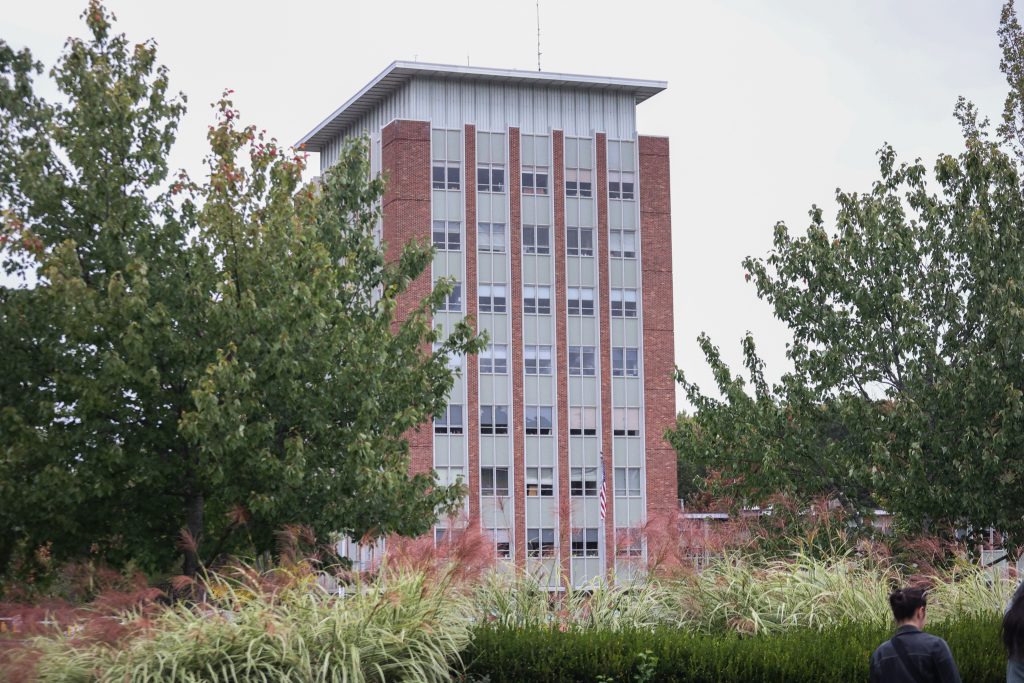The Student Association’s (SA) vice president for student success (VPSS) has begun working to change the course retake policy, which may provide students with opportunities to improve their grade point average (GPA).
According to the University Academic Guide, students who receive an F in a course and retake it will have an average of both grades factored into their GPA, while students who earn a D or above cannot have their retaken grade counted. Unhappy with the policy, a few students brought this issue to the SA and the VPSS’s office, led by Luca Cassidy, a junior double-majoring in economics and sociology, began considering whether the retaken course grade could be the only one factored in or both grades could be averaged.
“We have just started the process,” Cassidy wrote in an email. “We are currently researching to see what other comparable SUNY and state schools are doing, like Stony Brook or [the University of] Michigan. We look at these schools because if policies work at schools similar to us, it is easier to convince our administration to impose similar policies.”
The University of Buffalo only factors in the retaken grade when a student repeats a course, while Stony Brook University has a list of repeatable courses and takes a final average of the two grades. At the University of Michigan, students can only repeat a course twice, and the grade of the last attempt is factored in.
Cassidy expressed his and his team’s belief that changing the course retake policy would benefit and incentivize students to retake classes.
“For instance, if a student gets a D or a C in a foundational class and [walks] away without really understanding the material, they may feel discouraged to retake the class as the new grade will not affect their GPA at all, even if retaking it would help them prepare for future classes and their career,” Cassidy wrote. “[The] SA and my team members like and appreciate the idea.”
SA decisions cannot directly alter University policies. Once presented to and voted on by the SA Congress, representatives must convince University administrators to implement their ideas and suggestions.
Celia Klin, the dean of Harpur College, emphasized that a big concern about the policy is equity.
“There are added expenses involved in staying an additional semester or taking summer and winter courses to allow enough time to retake classes to raise one’s GPA,” Klin wrote. “We don’t want to add to the challenges students already face when they have limited financial resources.”
Cassidy added that he would consider doing a survey to collect data on student opinions, exploring whether or not they would consider retaking courses if the new policy was implemented. He would also potentially look into available literature on the topic, as well as the policies in place at various Ivy League schools.
Seungbeen Lee, a senior majoring in accounting, said that the change might be unfair to certain students who did well in the class the first time they took it.
“Grades exist for distinguishing comparative excellence of the students in the same course and change in policy fades the meaning of measuring different levels of students,” Lee said. “If it is to [reduce academic] stress, having a limitation on [the] maximum letter grade students can achieve in retake could be another solution.”
Nicco Elie-Pierre, a junior double-majoring in political science and German, said that he supported the potential policy change.
“It doesn’t really make much sense to have a class that you retake in order to get a better grade, whether for your major or general GPA, to not fulfill that purpose,” Elie-Piere said. “This change simply makes retaking a class actually be retaking a class, rather than relearning a course’s material without [benefiting] your GPA.”



